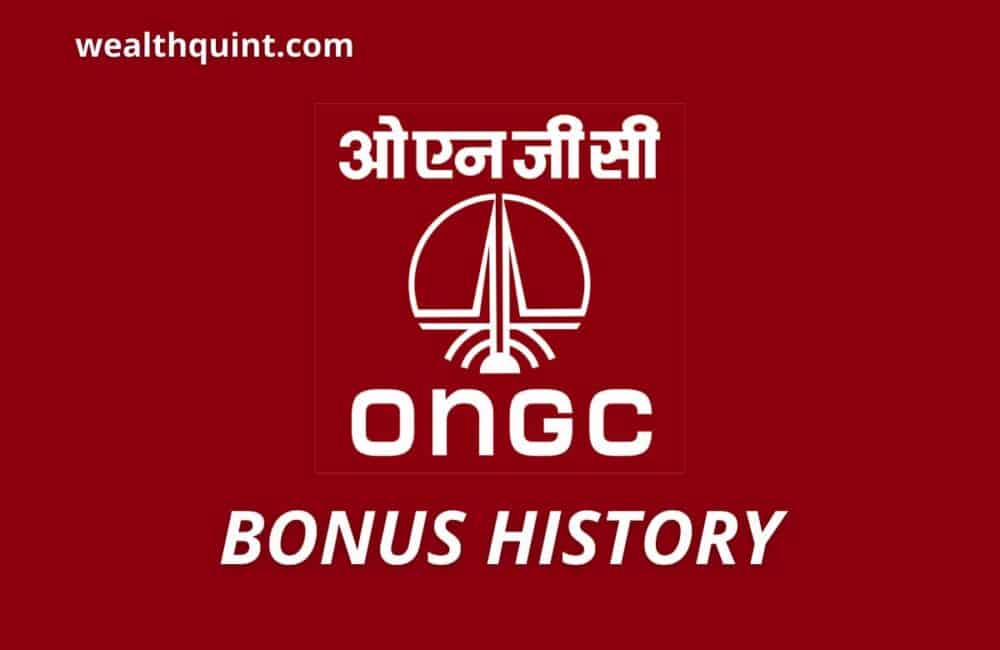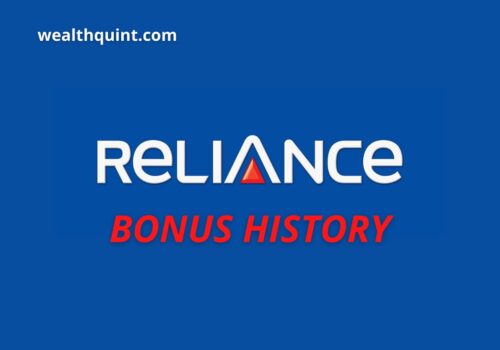Oil and Natural Gas Corporation (ONGC) is an Indian government-owned crude oil and natural gas corporation. Its registered office is in New Delhi. It is under the ownership of Ministry of Petroleum and Natural Gas, Government of India. It was founded on 14 August 1956. It’s headquarter is in Deendayal Urja Bhawan, Vasant Kunj, New Delhi.
It is the largest government-owned oil and gas exploration and production corporation in the country, and produces around 70% of India’s crude oil (equivalent to around 57% of the country’s total demand) and around 84% of its natural gas.
Share Bonus is a new stock market technique companies use to attract further new and hold old shareholders. Rather than cashing out the employees in the form of dividends, the money creates more value.
The new bonus stock drives the individual share price down, bringing in retail investors and increasing stock liquidity, activity. The established shareholders are incentivized while not having to dilute their portfolios.
Share Bonus Share drives a higher market capitalization to help companies raise more money from the market.
ONGC Share Bonus History
| Announcement Date | Bonus Ratio | Record Date | Ex-Bonus Date |
| October 27, 2016 | 01:02 | December 16, 2016 | December 15, 2016 |
| December 16, 2010 | 01:01 | February 9, 2011 | February 8, 2011 |
| July 26, 2006 | 01:02 | October 30, 2006 | October 27, 2006 |
ONGC has announced bonuses 3 times from 2006 to now. The last bonus that Oil and Natural Gas Corporation had announced was in 2016 in the ratio of 1:2, The record date is December 16, 2016, with an ex-bonus date of December 15, 2016.
What Is A Bonus Share?
Bonus shares are free shares given out to the shareholders based on their current shareholdings. In this scenario, all the profits are converted into free shares instead of being given out as a dividend. The shareholders then can hold or float these shares in the market freely.
How Does A Bonus Share Work?
The Bonus shares are given to the shareholders based on their holdings and do not dilute their portfolio. The amount of bonus shares issued depends upon the company; for ex-, If a company offers 4/3 bonus shares, it will be multiplied by the shares owned, and the company will issue bonus shares accordingly.
Is Bonus Share Good For The Investors?
Yes, there are many benefits of Bonus Shares for the investors-
- Increase in Market Capitalisation- Profits generated getting converted into additional shares can increase the market value for companies.
- Reduced share prices- Increase in the share will lead to the stock’s market value going down. It can bring in new value to investors and retailers to buy the stock, increasing stock activity.
- No dilution- The lack of dilution is hugely beneficial for the shareholders and increases their portfolio value.
What Happens When Bonus Shares Are Issued?
The liquidity of the stock increases, and the share prices tend to fall due to more stocks available in the market. It can boost a stock’s performance and bring new retail investors to invest in a company.
Do Share Prices Fall After Bonus Issues?
Yes, the share prices fall due to the basic market economics and supply/demand trends that influence the stocks.
Who Is Eligible For Bonus Shares?
The shareholders who bought shares before the ex-date are eligible for receiving bonus shares.
What Is The Bonus Announcement Date?
It is the date set by the corporation’s management when a company will issue the bonus shares to the shareholders.
What Is A Bonus Ratio?
It refers to the issue of bonus shares compared to the total amount of shares an individual or corporation holds. Bonus Ration is the basic mathematical equation used to determine the new shares issued.
What Is A Bonus Record Date?
The bonus Record date is the day the management and the shareholders agreed as the cut-off date for new shareholders.
What Is An Ex Bonus Date?
It is the day preceding the record day set by the company’s management, shareholders.




